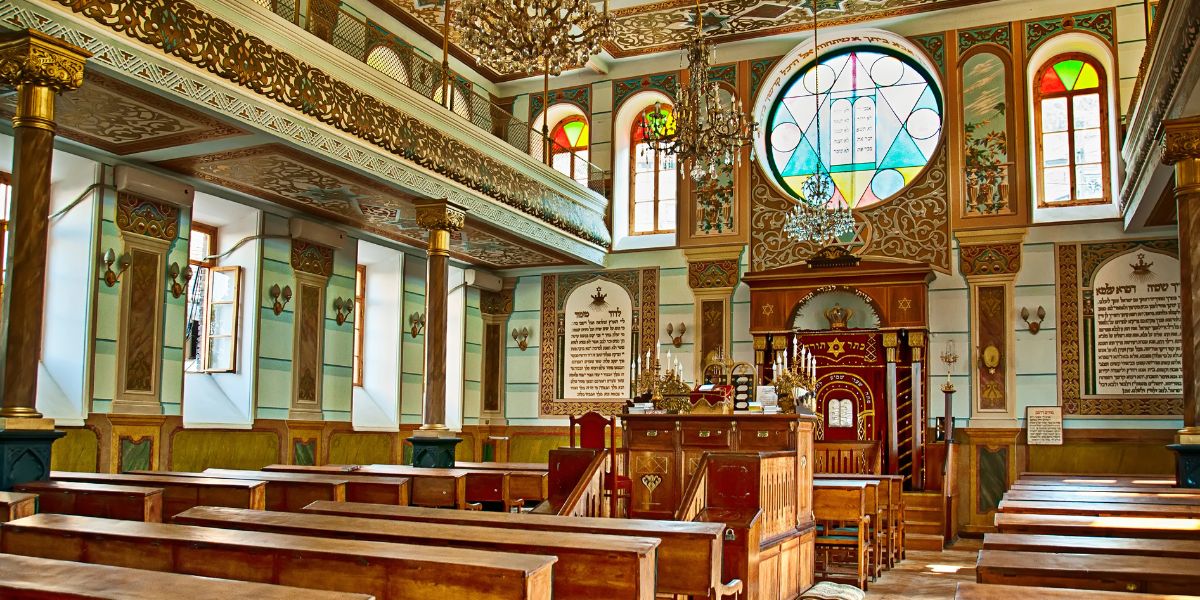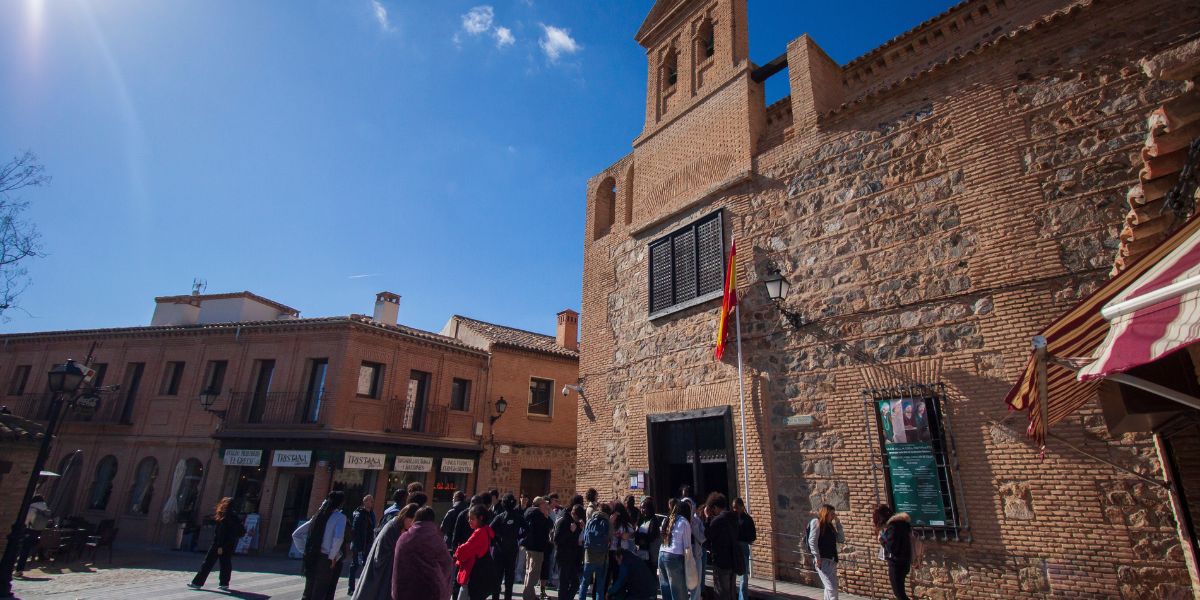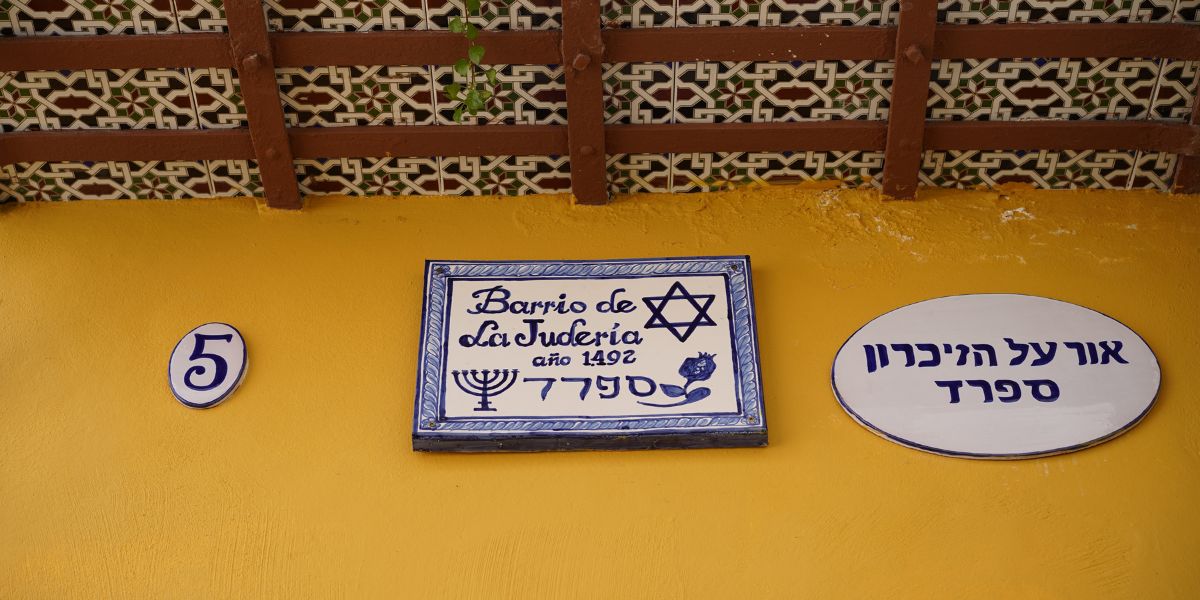Did you know that Georgia, nestled in the Caucasus, is home to one of the oldest Jewish communities in the world? As kosher travel ventures into new frontiers, Georgia offers a unique blend of ancient Jewish heritage and breathtaking landscapes. Let’s embark on a journey through this land of mountains and hospitality, exploring the ins and outs of kosher travel in Georgia for 2024!
Understanding Kosher Challenges in Georgia
Georgia has been a home to Jews since the 6th century BCE and still has a thriving community today in the country’s major cities. Today, Georgia is home to around 1,500 Jews, with the majority residing in Tbilisi, the country’s capital, and smaller communities across Kutaisi, Batumi, Oni, Achaltische, Ahalkalaki, Surami, Kareli, and Gori.
Georgia has some great kosher dining options in Tbilisi and Batumi, with several restaurants and Chabad Houses offering Shabbat meals and kosher products for purchase.
If you are touring in parts of Georgia without kosher dining options, you should consider pre-planning what you will eat throughout your trip. We recommend bringing dry food and non-perishables (think canned foods, instant meals, cereals, crackers, nuts, dried fruit, peanut butter, and mayonnaise and ketchup packets). If you’re comfortable with it, you can buy fresh fruits, vegetables, and eggs from local markets. Check out the Chabad website for a list of kosher products that you can purchase at Georgian supermarkets.
The Chabad in Georgia is a great resource for all of your kosher needs during your Georgia Jewish heritage travels. If you are in Tbilisi or Batumi, you can arrange to stay at the Chabad House or nearby for Shabbat meals or prepared food for Shabbat. They might also have Jewish contacts around Georgia if you wish to get in touch with local Jews who can provide you with kosher food or meals during your stay.
Kosher certification bodies in Georgia
Kosher certification symbols you will most likely see on kosher food packaging in supermarkets include OU (Orthodox Union), HaRabanut HaRashit of Russia, and several others. Check with a local Rabbi or Chabad center for more information on acceptable kashrus agencies available in Georgian supermarkets.
Georgians as a whole are very accepting of Jews and Jewish culture and for thousands of years, Jews lived side by side with non-Jewish Georgians without the fear of discrimination or persecution. Several kosher dining options are available in Tbilisi and Batumi, but if you are not in the vicinity, typical Georgian cuisine naturally offers many vegetarian and vegan dishes, making it easy to accommodate different dietary restrictions.
Georgia Jewish Heritage Travel
With thousands of years of rich history, there are several significant Georgia Jewish sites for you to visit that will allow you to immerse yourself in the culture that is unique to Georgian Jews and see how today’s Jewish community continues its traditions and customs from centuries past!
The Great Synagogue of Tbilisi: history and visiting information

Built between 1895 and 1904, this imposing brick structure situated in Old Tbilisi incorporates a stunning mix of architectural styles, including Moorish inspiration and Romanesque architecture. The synagogue consists of two floors, with newly restored gold and blue frescoes and intricate floral details, and a mikveh.
If you’re visiting Tbilisi on a Georgia Jewish tour, a great way to learn about the local community and traditions is by visiting its social and spiritual center- the synagogue. Throughout the year, the Great Synagogue hosts cultural events, lectures, and educational programs, offering you a chance to experience Georgian Jewish heritage on a deeper level.
Visitors are welcome to observe services from a designated area and check out a museum showcasing historical artifacts and exhibits that document the centuries-long history of Jews in Georgia.
Exploring the Jewish Quarter in Oni
Located in western Georgia with a stunning view of the Caucasus mountains lies Oni – a small Jewish community with a long and rich history! Jews have lived in the area for hundreds of years, with evidence of their presence dating back to the 15th century.
While there was never a designated quarter for Oni’s Jews to live in, Baazov Street and three other districts -Vakhtang VI St., Kirovi St., and Chachashvili St. – were overwhelmingly inhabited by Jewish residents.
At its peak, the Oni Jewish community numbered approximately 3,500, making it the third largest in Georgia, after Tbilisi and Kutaisi. Between the wave of Aliya between 1972 and 1992, a majority of Oni’s Jews immigrated to Israel, leaving behind only a handful of the once-thriving community. Today, the beautifully preserved 19th-century synagogue is still used as a House of worship by locals and tourists alike.
Oni Synagogue
The synagogue, built in 1895, is Georgia’s third largest synagogue after the Great Synagogue of Tbilisi and the synagogue of Kutaisi, making it a destination worthy of adding to your Georgia Jewish heritage travels bucket list!
With stunning mountain peaks as its backdrop, the grand synagogue stands out in Oni with its imposing stature, neo-Moorish design, and large blue dome. Visitors can make an appointment to go inside and explore with one of the caretakers. You will marvel at the pale blue and white high arches, golden Hebrew inscriptions on the wall, and a colorful mural of Mount Sinai painted above the Torah Ark. During the Soviet period, this important piece of Georgian Jewish heritage was spared thanks to the mobilization of residents, Jews, and Gentiles, who fought against its destruction.
Oni Monument
The monument is dedicated to Sergei Metreveli and the victims of the Holocaust. In 1942 when the Nazis invaded Kislovodsk, a city located in the north Caucasus, Sergei Metrvel, who at that time, worked in a wine factory in the city, helped Jews escape Russia and sheltered them in his own home in Racha, Utsera, just 15 kilometers from Oni.
Visiting the monument is a great opportunity to add meaning to your visit by commemorating and honoring the memory of Metreveli, who in 2006 was given the status of “Righteous Among the Nations” by Yad Vashem.
The Unique Cave Synagogue in Gori
Just 10 kilometers from the ancient Uplistsikhe Cave Town lies Gori, one of the oldest towns in Georgia with a Jewish population that thrived in the beautiful mountain town. The small community is tight-knit and kept its traditions and customs alive for centuries. If you are on a Georgian Jewish tour in Gori, you will come across their synagogue hidden in the courtyard of a regular House while exploring the charming Old Town.
It was built in 1936 at a time when synagogues and churches across the Soviet Union were being destroyed. The synagogue survived, and to this day stands strong and continues to serve the small, enduring Jewish community, which numbers around 40.
Unlike synagogues in bigger cities, like Tbilisi, the Gori synagogue is situated in an unassuming brick building that can be difficult to find if you’re not looking for it! The interior includes simple wooden benches and a beautiful Bima and Torah ark decorated with Star of David cutouts The House of Worship has a main praying hall and an upper gallery for women.
Underneath the synagogue, visitors will find a second decommissioned synagogue with a unique Jewish heritage artifact – an old oven once used to produce Passover matzo for the entire region!
Jewish Museums and Cultural Centers Across the Country
1. David Baazov Museum of History of the Jews of Georgia
The museum was erected on the old side of Tbilisi in 1932 in place of the former synagogue constructed in 1914. It is a treasure trove full of centuries-old history of Jewish life in Georgia with a one-of-a-kind scientific center studying Georgian-Jewish relations. The museum was named in honor of David Baazov, a Georgian rabbi who played a significant role in the development of the local Zionist movement.
2. The Georgian National Museum
This is the largest museum complex in Georgia and consists of several buildings, two of which are dedicated to the country’s Jewish heritage. The museum’s Jewish collections consist of Jewish artifacts, dresses, textiles, accessories, amulets, old photos, manuscripts, books, and gravestones with Hebrew and Aramaic inscriptions from the 3rd and 4th centuries.
Visiting the museum is a great way to delve into the unique history, culture, ethnography, traditions, and everyday life of Georgia’s Jewish communities from the 19th century to the 20th century. Visitors can also view paintings and drawings of the first Jewish self-taught artist in Georgia, Shalom Koboshvili, and renowned Georgian painter David Gvelesiani.
3. Georgian National Centre of Manuscripts
While not a Jewish museum, history buffs and Jewish heritage enthusiasts alike will find the Georgian National Centre of Manuscripts a feast for the eyes, full of ancient manuscripts, historical documents, and private archives. One of the museum’s prized possessions is the Lailashi Bible, a 10th-century handwritten Torah with original comments and colorful inscriptions and illustrations, found in the village of Lailashi and brought to the museum in the 1940s.
4. Batumi Jewish Heritage Center
This center works to promote awareness of local history through exhibitions, lectures, and workshops on topics related to Judaism. Furthermore, it hosts various cultural events throughout the year which bring together people from different backgrounds for music performances, and art exhibitions.
5. Georgia’s Chabad Houses – Tbilisi, Batumi
Known for being flung across all four corners of the earth, Chabad emissaries work tirelessly to support and promote Jewish life worldwide through educational and outreach programs, religious services, and activities for the local Jewish population.
Another important job they do is giving Jewish tourists a haven where they can access kosher food, attend prayer services, and receive Shabbat meals in a welcoming environment. It is a great resource for information on local Jewish services, such as synagogues, mikvehs, and possibly contacts from Jewish communities around the country.
Kosher-Friendly Accommodations
Take the stress out of traveling kosher by checking out our recommendations for the best kosher-friendly options in Tbilisi! These include the city’s only kosher hotel, hotels with quick walking access to the local Chabad House (which has a restaurant, Shabbat meals, and kosher products for purchase), and apartments with kitchenettes to make cooking your kosher meals easy. Renting an apartment or staying in an aparthotel is a great option for families, as it’s a great way to save money and accommodate different dietary needs and preferences.
Hotels in Tbilisi
Cron Palace – A strictly kosher shabbat-friendly hotel just 10 minutes away from Tbilisi’s bustling center. The hotel features a restaurant, bar, and spa center with a swimming pool, sauna, and hammam.
Gallery Palace – This kosher hotel is just a stone’s throw away from some of Tbilisi’s most popular attractions. Observant travelers can take advantage of the hotel’s kosher restaurant and synagogue, complete with a Torah scroll.
The hotels listed below are within walking distance of Tbilisi’s Chabad House:
- Point Hotel – Adjacent to the Chabad House
- Hotel Khokhobi Old Tbilisi
- Mukhrantubani Boutique Hotel
View the full list of nearby hotels at the Chabad House Tbilisi website.
Apartment hotels
These accommodations are great for those who want independence with some of the conveniences of a hotel, which may include a concierge, gym facilities, laundry service, and more. In particular, families with children will greatly benefit from the larger living areas, kitchens (either full-size or kitchenettes), and privacy. Some even offer laundry facilities.
Kosher observant individuals will find that having a kitchen can make all the difference, especially if you want to save on eating out.
If you do choose to stay in an apartment, make sure to bring your own kosher pots and pans and buy disposable plates and cutlery. The Chabad website has a list of kosher products that you can purchase at local Georgian supermarkets.
Here are a few centrally located apartment hotels in Tbilisi:
- Citadines City Centre Tbilisi Apart`hotel
- Historic Apartments “1868 Tbilisi”
- Eco Rooms
If you are looking for a more intimate experience, staying with a local from the Jewish community is a great way to get an inside look at the everyday life of Georgian Jews, as well as a fantastic chance to ask all of your questions about the community’s customs and traditions. Your best bet for connecting to a host from the community is to get in touch with the area’s Chabad House or by contacting the local synagogue.
Navigating Georgian Cuisine as a Kosher Traveler

As we mentioned earlier, Georgian cuisine is easily adaptable to many different dietary restrictions, including kashrut, due to the inclusion of many dishes featuring fresh vegetables, fruit, nuts, and dairy products.
Below are a few traditional dishes that are naturally kosher:
Lobio: A hearty bean stew, made with red beans, onions, and garlic, served with a side of cornbread and pickles.
Pkhali: A variety of finely chopped vegetables such as spinach, beets, or eggplant, combined with a flavorful walnut sauce and topped with pomegranate seeds.
Ajapsandali: An eggplant, tomato, and bell pepper stew that is slow-cooked with a mix of herbs and spices.
Badrijani Nigvzit: Thinly sliced, fried eggplant rolls stuffed with a rich walnut-garlic paste and garnished with pomegranate seeds
If you’re dying to try the decadent cheese and egg-filled Georgian bread, Khachapuri, many bakeries make vegan versions of the iconic dish using cashew-based vegan cheese.
Communicating Dietary Needs in Georgian Restaurants and Supermarkets
While traveling through a foreign country, it’s easy to get lost in translation. Here are a few tips for navigating Georgian restaurants as a kosher-observing Jew and getting your point across in a foreign language:
- Pack a foreign phrasebook or a list of phrases on hand that include kosher-friendly food names, common ingredients, dining requests, dietary considerations, and products.
- Screenshot the kosher product list from the Chabad website to show to supermarket staff if you cannot find the items yourself.
- Learn how to ask about kosher certification with phrases like “Do you have products with X certification?” “Does this store have kosher products?”
Planning Your Kosher Trip to Georgia
Are you ready to see some incredible Georgia Jeiwhs sites? Before you pack your bags, consider the best time of year to visit. Some things to take into consideration are the weather and events you want to attend.
For the best of both worlds, a great time to go on a Georgia Jewish tour is April-October. These months offer the most pleasant weather across the country while giving you the chance to participate in local celebrations and prayer services during some of Judiasm’s most major holidays – Passover, Shavuot, Rosh Hashana, Yom Kippur, and Sukkot.
Another great time to go is in December. The weather is not too cold yet, and you join all the fun of Hanukkah celebrations. In Batumi, the festival of lights is marked by parades, concerts, parties, and a lighting ceremony where people gather together to sing traditional Hanukkah songs.
Transportation Tips for Shabbat-Observant Visitors
Getting from A to B on Shabbat is hard enough at home, but when you’re in a foreign country the challenge can be even greater when you’re not familiar with your surroundings or the local language. Here are a few tips for a seamless Shabbat abroad:
- Book your accommodation within walking distance of a local synagogue or a Chabad House on Shabbat, especially if you plan to have your meals there.
- Take into account that there are no eruvs in Georgia if you are traveling with a baby or toddler who needs a stroller.
- If you’re staying in one of Tbilisi’s kosher hotels that offer synagogue services, choose one with Shabbat-friendly sites nearby, such as parks or gardens.
- Have the addresses you need written down or memorized so that you can ask a local for directions if you get lost.
- Wear comfy shoes for walking if you know your accommodation is far from the synagogue or your Shabbat meals.
Essential Georgian Phrases for Kosher Travelers
Sometimes, all it takes is a little courage and Google Translate! If you have any dietary restrictions, having a few important phrases in your back pocket is always handy to avoid misunderstandings and ensure your needs are met. Phrases like “I keep kosher,” “Does this contain meat or dairy?” or “Is this food kosher-certified?” can go a long way in ensuring your food is prepared according to your dietary guidelines.
Connecting with Jewish Communities in Georgia
One of the main goals of your Georgia Jewish heritage travels is probably learning about the history, traditions, and customs of the Jewish community and how they assimilated and adopted aspects of the local culture. Each community has its own unique story, and the best way to hear all about it is by speaking to the people themselves.
Jewish Communities in Tbilisi, Batumi, Kutaisi, and Oni
Tbilisi
As the capital of the country, Tbilisi naturally has the largest population of Jews in Georgia, with today’s population reaching approximately 10,000. The city offers visitors many Jewish heritage sites, including multiple synagogues, cemeteries, museums, and a Chabad house.
With 26 centuries worth of uninterrupted Jewish history and culture, Tbilisi is a must for those looking to discover a unique Jewish culture that you won’t find anywhere else in the world!
It’s especially a great place for kosher observant travelers to explore due to the sheer number of kosher and kosher-friendly dining options, including a kosher hotel.
Kutaisi
As one of Georgia’s oldest cities, Kutaisi is home to many historic sites, including an 11th-century cathedral, a 12th-century monastery, and not one, but three synagogues in the city’s old Jewish quarter. The Kutaisi Synagogue, known as the “Big Temple” was established in 1852 and is Georgia’s second-largest synagogue.
Here, the local Jewish population keeps their religion, traditions, and culture alive, using the facility for communal activities, learning Hebrew, conducting religious rituals, and baking matzah for Passover in traditional ovens. Jewish presence in Kutaisi has been documented as far back as 1644, although any claim that Jews settled in the region centuries before this.
Whether you’re an architecture enthusiast or Jewish history buff, the Kutaisi Synagogue is a destination you will not want to miss! The striking structure is built in the Neo-Romanesque style, with a beautiful white stone exterior, high arches, vibrant blue walls, and colorful paintings decorating the interior of the synagogue.
Batumi
Located on the Black Sea coast, Batumi is the capital of the Autonomous Republic of Adjara in southwestern Georgia. The coastal city has long been a crucial trading center since ancient times, connecting East and West through its port through which the earliest known Jewish settlers arrived as early as the 16th century. These Jews were mainly traders and merchants who migrated to make a better life for themselves by taking advantage of the city’s booming economy.
Over the years, Batumi’s Jewish community had a strong influence on the city’s art scene and many Batumian Jews became famous writers, poets, and musicians, making Batumi an important cultural center for centuries.
Today, Batumi is home to the second-largest Jewish community in Georgia, boasting a luxury kosher hotel, an impressive Ashkenazi synagogue, and a thriving Chabad house, making it a fantastic option for kosher-observant visitors.
Oni
Jews have inhabited this western Georgian city since the 18th century after the annexation of Georgia by Russia. Oni’s Jewish community was once a flourishing hub for culture and religious life, at one point being the most inhabited Georgian region by Jews.
Today, you can visit Oni and gaze upon the awe-inspiring mountain tops and lush forests that wrap around the city, and explore the stunning 19th-century synagogue, which is still serving the handful of local Jews that are left of the once prominent community.
While you’re in the region, you can take a break and relax in Utsera, a nearby resort famous for its healing mineral springs, or break out your hiking boots for a trek across the Khikhati Mountains for unparalleled views!
Synagogues and prayer services across the country
All of the synagogues listed below are active, so feel free to get in touch and schedule a tour, or join a Shabbat service!
- Ashkenazi Synagogue of Tbilisi
- Batumi Synagogue
- Kutaisi Synagogue
- Oni Synagogue
- Surami Synagogue
- Great Synagogue (Tbilisi)
- Chabad Lubavitch of Georgia (Tbilisi)
Engaging with the Unique Georgian Jewish Community
Not to be confused with the Mountain Jews of Azerbaijan, Georgian Jews make up one of the oldest communities in the region, settling in Georgia during the Babylonian Exile in the 6th century BCE. Several accounts, studies, and DNA tests support this by showing that many Georgian Jews have roots originating in Iraq and Persia.
While they lived separately from other Georgians and the Ashkenazi population, mainly in Kutaisi, Tiflis, and Batumi, they were fully assimilated into the country’s rural life and culture. Today, the community numbers around 70,000, with a majority now living in the state of Israel.
Outdoor Adventures and Kosher Considerations
Thinking of trekking up one of Georgia’s magnificent mountains or maybe having a beach day by the Black Sea? Keeping kosher while out in the wild can be tricky, especially if you’re planning on being away from the city for more than a few hours. Here are some easy tips to keep you kosher and ready for anything on your next adventure!
Packing Kosher Supplies for Outdoor Activities
-
- Keeping compact and reusable utensils in your bag can make it much easier to keep kosher while on the go.
- Save space by bringing along collapsible lightweight plates and bowls for your meals.
- If you don’t have access to a kitchen or sink, pack enough disposable plates and cutlery for each meal.
- When hiking or camping, bring a small saucepan, a portable gas stove, or a charcoal grill for light cooking and reheating. Be sure to check with local authorities or the campsite staff if this is allowed.
- Camping over Shabbat? Put all of your essential Shabbat items in a zip lock bag – matches, tea lights, bread, and a small bottle of grape juice.
Kosher-friendly Ski Resorts in Georgia
Georgia’s postcard-worthy mountains make them the perfect getaway for ski enthusiasts! While there are currently seven ski resorts across Georgia, only BM Plaza, Bakuriani offers visitors kosher food. The Bakuriani ski resort is situated 1,700 meters above sea level, right at the foot of the breathtaking Caucasus Mountains and 180 km to the north of Tbilisi. The hotel’s Terrace Restaurant and Bar serves up dishes prepared for vegan, vegetarian, kosher, and halal guests.
Black Sea Kosher Options in Batumi
While Georgia may not be known for its sun and sand, you can a day relaxing and soaking up the rays at one of Batumi’s three spectacular beaches: Gonio Beach, Sarpi Beach, and Tsikhisdziri Beach.
Just a few minutes from the oceanfront, you can find several kosher dining options, such as the Haba-Eat restaurant where you can enjoy authentic kosher Israeli cuisine. Another option is Mendi’s – a mehadrin-certified Chabad-run meat restaurant that combines traditional Georgian and Israeli flavors!
If you want to spend more than a day in Batumi, consider staying at the King Solomon Kosher Hotel, which offers guests access to a kosher dairy and meat restaurant on the premises.
Keeping Kosher During Your Georgia Jewish Heritage Travel
If you are looking for a Jewish tour that is friendly to kosher travelers, Georgia is a country to consider! Compared to many other European destinations, Georgia offers more kosher dining options, with the local cuisine also being very adaptable to dietary restrictions.
If you are interested in embarking on a Georigia Jewish tour, a private tour with a reputable kosher travel agency may be the best way to go. With Gil Travel, you will receive a personalized luxury travel experience, ensuring all of your needs and preferences are taken into account, taking out all the stress of planning your Jewish heritage journey. Our local tour guide will navigate you through thousands of years of Georgian Jewish history, ensuring an immersive and enriching experience that will leave you with unforgettable memories of one of the world’s most ancient Jewish communities!










